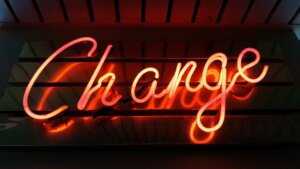By Gabriel Patel from Healthwellwise.com
Finding Forgiveness for Yourself: Moving On With Recovery After a Relapse
Addiction recovery is hard. Getting back on track after a relapse can be even harder. If you’ve fallen back into your old ways during your recovery, don’t be tempted to give up. Relapse doesn’t have to be the end of your efforts, if you follow these words of advice from Soul Building Fitness:

Remember That Relapse is Common
If you’ve experienced a relapse, you may be feeling like recovery isn’t possible for you. But that’s simply not the case. Relapse is so common it’s considered an integral stage of recovery. Fighting addiction is hard, and like any bad habit, you’re bound to slide back into your old ways. The most important thing is to recognize your mistake and spend a little time figuring out what happened. Just avoid dwelling on your relapse, or it is likely to happen again.

Know How to Talk to Loved Ones
Fighting an addiction can already leave you alienated from friends and family members. Admitting to a relapse can make you want to just go it alone. Maintaining positive social connections, however, is a key to good mental health and recovery success. You need your support system to help you along the way, so be honest about your slip up. Let your family and friends know how much of a struggle recovery is for you, and ask for help if you need it. When you’re trying to break a bad habit, it’s always good to have the backing of your friends and family.
Work to Identify Your Triggers
Triggers aren’t just a small part of addiction. Triggers are powerful connectors to emotions and urges and can come in many different forms. Stress can be an intense trigger, enticing you to seek solace in your chosen substance. The environment around you can result in negative energy, which can trigger a relapse as well. Clutter, criticism, and complaining often are all big sources of bad energy. That’s why it’s essential to take stock of your triggers now and do everything in your power to cleanse them from your life.

Seek Help From Professionals
If you haven’t consulted a professional by now, a relapse is a good sign that you need to. You need to visit with a counselor to help you uncover the underlying root of your addiction. Perhaps it’s a coping mechanism for anxiety or stress. Or, like many who struggle with addiction, you may be dealing with a past trauma without even realizing it. Speaking with a mental health professional will help you dig deeper into your addiction and address any issues that could cause you to use again.

Re-evaluate Your Recovery Plans
When an invention fails, inventors have to go back and reassess their blueprints. The same is true for your recovery. You may find that you just need a simple tweak, like adding yoga or meditation, or you may need a bigger overhaul. If you’ve neglected your physical fitness, try adding exercise (you can find tips and ideas on the Soul Building Fitness blog) and a healthy diet to your recovery plans. Having a sound body helps balance your mind and makes you feel more in control of your life. So commit to taking care of your body as you make strides to improve your overall health.

Forgive Yourself and Move On
Dwelling on your mistakes does nothing to prevent them from happening again. While you need to take some time to assess what went wrong, you also need to know when it’s time to simply let go of this indiscretion. Use this time to practice living in the present and being kind to yourself. Use self-care to get yourself back into a positive mindset. Forgive yourself for this relapse and forgive yourself for any other mistakes.

Bouncing back after a relapse can take some time. With all the hard work you’ve put into recovery so far, a relapse can make you want to quit, but don’t be tempted to throw all that effort away. Use any anger you feel to fuel yourself to get back on track and find your way to sobriety again.
For additional help, information, & inspiration from Gabriel visit healthwise.com

